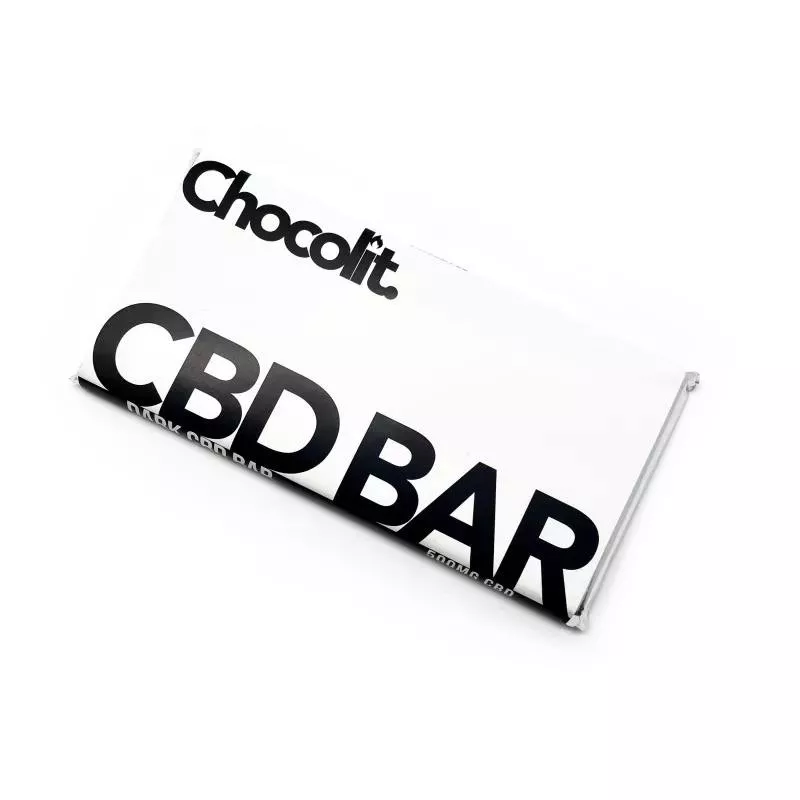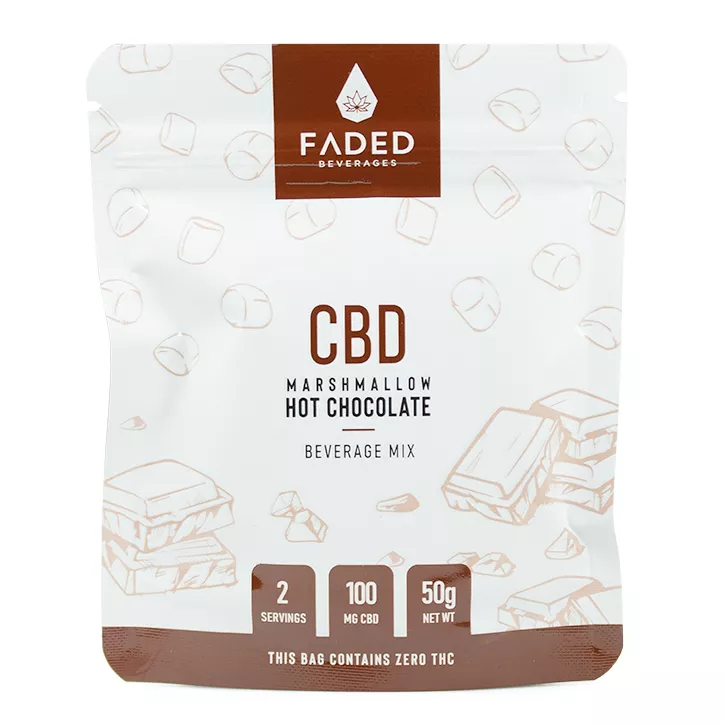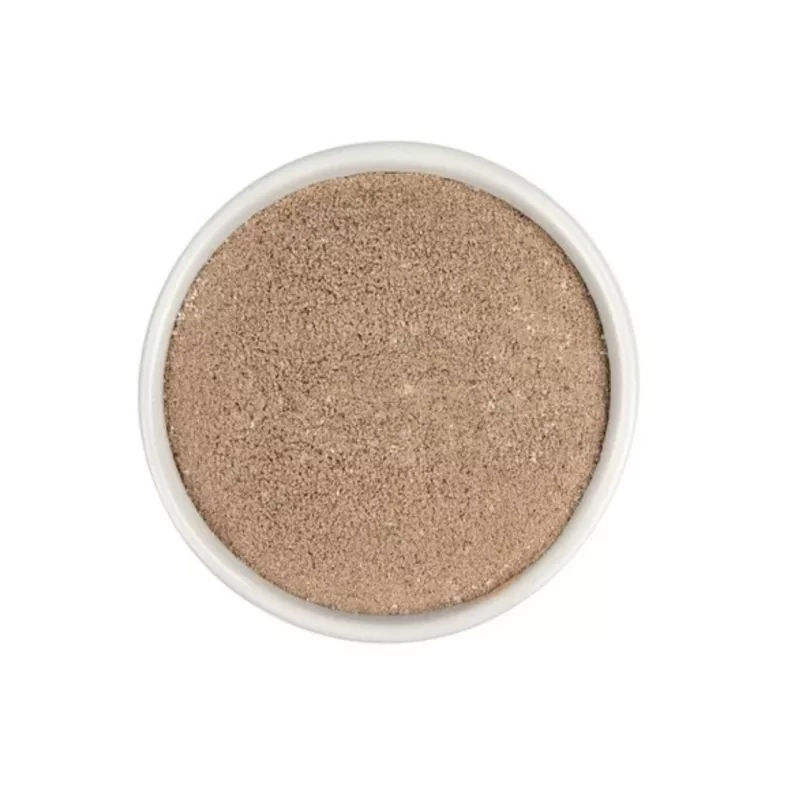- Shop All
- Type
- (144) THC>
- (75) CBD>
- Need
- Sleep>
- (21) Pain>
- (10) Anxiety>
- (6) Pets>
- (88) Edibles
- (14) CBD Edibles>
- (60) THC Edibles>
- (3) Ratio Edibles>
- (33) Hybrid Edibles>
- (87) Vegan>
- (5) Beverages>
- Strain
- (29) Indica>
- (24) Sativa>
- (47) Hybrid>
- (14) Tinctures
- (5) Anxiety Tinctures>
- (9) CBD Tincture>
- (1) Pain Tincture>
- (4) Ratio Tincture>
- (4) Sleep Tincture>
- (4) THC Tincture>
- (4) Capsules
- (1) CBD Capsules>
- (0) THC Capsules>
- (3) Ratio Capsules>
- Foggers
Can I Give CBD Chocolate Treats to My Dog?
Lexie LivingstonApril 11, 2022LatestContents
- What is CBD Chocolate Canada?
- What are the CBD Chocolate Effects in Humans?
- What are the CBD Chocolate Effects in Dogs?
- Are CBD Chocolate Treats Safe for Dogs?
- Keep your Best CBD Chocolate for Yourself and Friends (Human, of Course!)
- Vegan Cbd Dark Chocolate Bar - Chocolit
- Cbd Hot Chocolate - Faded Edibles
- Cbd Gummies Sour Squares - Mota
- Final Thoughts
You’ve likely already heard about the numerous health benefits of CBD. You may have even heard about the astonishing benefits when you combine chocolate with THC and CBD. With our dogs being just another member of the family, we’re tempted to share what we know works for us, with them. However, it’s not so simple. While CBD has tremendous healing capabilities for dogs, CBD milk chocolate may not be the best option for them. In this article, we’ll get into the benefits of CBD for dogs and why the CBD chocolate effects are best left for humans. But don’t worry, there’s plenty of canine approved CBD treats for them!
What is CBD Chocolate Canada?
Chocolate has been recognized as the "soul mate" of CBD in the cannabis market. They're practically made for each other! Let's start by learning about anandamide. This is a strong neurotransmitter found in your body that targets the same brain areas as THC. Anandamide stimulates the production of serotonin and dopamine, which helps to regulate mood, appetite, and cognition. Small amounts of anandamide are found in chocolate. CBD chocolate Canada also contains fats, known as lipids, which help to prolong the benefits of CBD. This implies that your CBD chocolate dosage will last longer and that your money will go further!
Chocolate with THC and CBD has continued to grow in popularity over recent years for good reason. With an expanding market, companies have continued to develop products that cater to different interests and needs. For example, you may now purchase CBD vegan chocolate and organic CBD chocolate. Taking it a step further, you may purchase other food products such as THC infused chocolate milk, THC chocolate cake, and THC chocolate candy!
What are the CBD Chocolate Effects in Humans?
When you eat CBD milk chocolate, for example, your receptors are active, and your anandamide levels will rise. The endocannabinoid system is nourished by the sugar in chocolate, which amplifies the impact. This has an influence on a variety of cognitive functions, including pain suppression, sleep normalization, and mood improvement. As a result, those who consume a recommended CBD chocolate dosage will experience less anxiety.
In addition, both CBD and chocolate are powerful antioxidants. Chocolate actually has more antioxidants than the vast majority of foods. It also contains magnesium, copper, potassium, and iron, among other vital elements. When consumed, the best CBD chocolate will provide the following additional advantages: powerful anti-inflammatory benefits, reduces the risk of cardiovascular disease, reduces the risk of diabetes, and will stimulate the central nervous system.
What are the CBD Chocolate Effects in Dogs?
CBD has been demonstrated to be especially useful to dogs in recent studies. It can help dogs with anxiety, seizures, inflammation and pain, as well as skin issues. For pets, CBD may offer even greater advantages. It's been found to help with depression, appetite loss, glaucoma, insomnia, and other conditions in humans. Because people and dogs appear to be influenced by CBD in similar ways, several scientists are now attempting to determine whether dogs can benefit from CBD in the same ways as humans.
If you're interested in learning more about the benefits of CBD for your pet, click here.
Are CBD Chocolate Treats Safe for Dogs?
While CBD has been shown to be safe in dogs, chocolate on the other hand is not. CBD is the same CBD found in human products as it is in pet products. So, while human CBD may be safe to administer to your pet, you should always follow your veterinarian's advice. If the product isn't manufactured expressly for pets, read the label to double-check for additives like chocolate, essential oils, and artificial sweeteners, which can be hazardous to your dog.
Chocolate poisoning is rarely fatal, although it can cause serious illness in your dog. Chocolate is poisonous because it includes theobromine, a substance that works in conjunction with caffeine. Theobromine is remarkably similar to caffeine. Both compounds are utilized as diuretics, heart stimulants, blood vessel dilatant, and smooth muscle relaxants in medicine. Theobromine and caffeine are not metabolized as well by dogs as they are by humans. As a result, dogs are more susceptible to the impacts of this chemical.
For more information on chocolate toxicity in dogs, click here.
Keep your Best CBD Chocolate for Yourself and Friends (Human, of Course!)
While your favorite organic CBD chocolate may be your go-to for anxiety, pain, or sleep issues, it will likely be toxic to your dog. Luckily, there are CBD products designed specifically for your pet that do not include chocolate or other harmful ingredients. Here at Birch + Fog, we carry products for the entire family.
Whether you’re seeking a delectable chocolate with THC and CBD for yourself or bacon flavored CBD treats for your dog, we have it all! When you buy CBD chocolate (or any other CBD product) from Birch + Fog, you have our quality and purity guarantee. Each and every product has undergone strict testing by third-party independent labs, verifying that it contains the highest quality CBD on the market without any toxic ingredients or contaminants. Continue reading for our picks for the best CBD chocolate!
1 Vegan Dark Chocolate Bar | Chocolit - Premium Ingredients, Editor’s Pick
2 CBD Hot Chocolate | Faded Edibles - Best Tasting Chocolate, Customer Pick
3 CBD Sour Squares | MOTA - Top CBD Isolate Gummies for Beginners
1 Vegan Dark Chocolate Bar | Chocolit
This CBD vegan chocolate bar combines true strength and lab-tested CBD with the finest ethically sourced chocolate. Made with simple and whole ingredients, the entire bar is 100% animal friendly. The CBD chocolate effects include helping with sleep, pain, inflammation, anxiety, and depression. Each bar contains 500mg of full-spectrum CBD divided into 24 individual squares. Full-spectrum CBD oil is the very first ingredient, which means this bar is pure and potent. The recommended CBD chocolate dosage is 1 square and wait 45 minutes to feel the full effects.
Pros:
- 500mg of full-spectrum CBD per bar
- Contains true strength and lab-tested CBD
- Made with simple and whole ingredients
Cons:
- This bar was manufactured in a facility that also handles tree nuts, peanuts, gluten, soy, and dairy
Highlights:
- Full-spectrum CBD oil is the very first ingredient
- 100% animal-friendly
- Contains ethically sourced chocolate
Customer Experience:
Customers can’t get enough of this CBD vegan chocolate bar for its premium ingredients at such a reasonable price (a little over one dollar per serving!). They appreciate that full-spectrum CBD oil is the first ingredient and that this chocolate is potent and effective. Verified buyers often comment that one square allows for total relaxation.
2 CBD Hot Chocolate | Faded Edibles
This CBD milk chocolate beverage is perfect for those cold nights around the fire. It is made in Canada from lab-tested ingredients, including 50mg of CBD isolate per packet (25mg per serving). Each bag contains 2 packets (4 servings). The taste is a rich and delicious, velvety cocoa with mini marshmallows. Just mix half a packet with milk or water and enjoy!
Pros:
- 50mg of pure CBD isolate per packet
- Rich, delicious, velvety cocoa taste
- Easy to mix with water or milk
Cons:
- May be difficult to measure dosage in powder form
Highlights:
- Made in Canada
- Contains only lab-tested ingredients
- 4 servings per bag
Customer Experience:
Customers love the taste of this CBD hot cocoa, stating that it tastes like a melted chocolate bar. They report that it is the perfect drink to relax around a campfire or a night-time dessert to unwind before bed to promote a deep, restful sleep. Verified buyers mention that it not only helps with sleep, but relieves anxiety and chronic pain.
3 CBD Sour Squares | MOTA
MOTA CBD gummies are a sour, fresh take on MOTA’s classic THC Sour Squares, but now infused with all the benefits and goodness of CBD Isolate! Each bag contains 15 assorted gummies covered in an insatiable sour sugar. These tasty little treats make medicating easier and tastier than ever and they’re great for helping ease away stress and anxiety. A excellent, easy to dose option for treating insomnia, pain, and to ease stress and anxiety away.
Pros:
- Contains CBD isolate
- Contains 15 servings per package
- Ideal for inflammatory pain and joint tension
Cons:
- Will not receive the entourage effect due to being CBD isolate
Highlights:
- Delicious without any cannabis taste
- Contains 10 mg of pure CBD isolate per gummy
- Healing powers of CBD with no psychoactive effects
Customer Experience:
Customers enjoy the delicious taste of these gummies as they mask the earthy taste of CBD very well. They report that within 30 minutes, they felt calm, relaxed, and their pain started to fade away. With CBD isolate, they were able to go about their day without any intoxicating effects.
Final Thoughts
While studies have shown that CBD is safe and effective for both humans and pets, it’s best to exercise caution before sharing your CBD supplement with your dog. CBD chocolate Canada can provide delicious relief for us humans, but the chocolate can be toxic if ingested by dogs. That’s why we have created an entire pet line at Birch + Fog. By simply clicking on the Pets tab, you’ll find tinctures and treats created specifically for dogs and cats, without any ingredients that may be harmful to them. If you’re looking to buy CBD chocolate, simply click the Chocolate tab! Here at Birch + Fog, we carry the best CBD chocolate on the market today!
0/5 (0 Reviews)Latestfrom B+FBe the first to know about exciting new products, special events, seasonal offers, and much moreOur Collective
Wellness to your doorstepCopyright © 2024 All Rights Reserved | BIRCH + FOG[gtranslate]Save your cart?
x
















